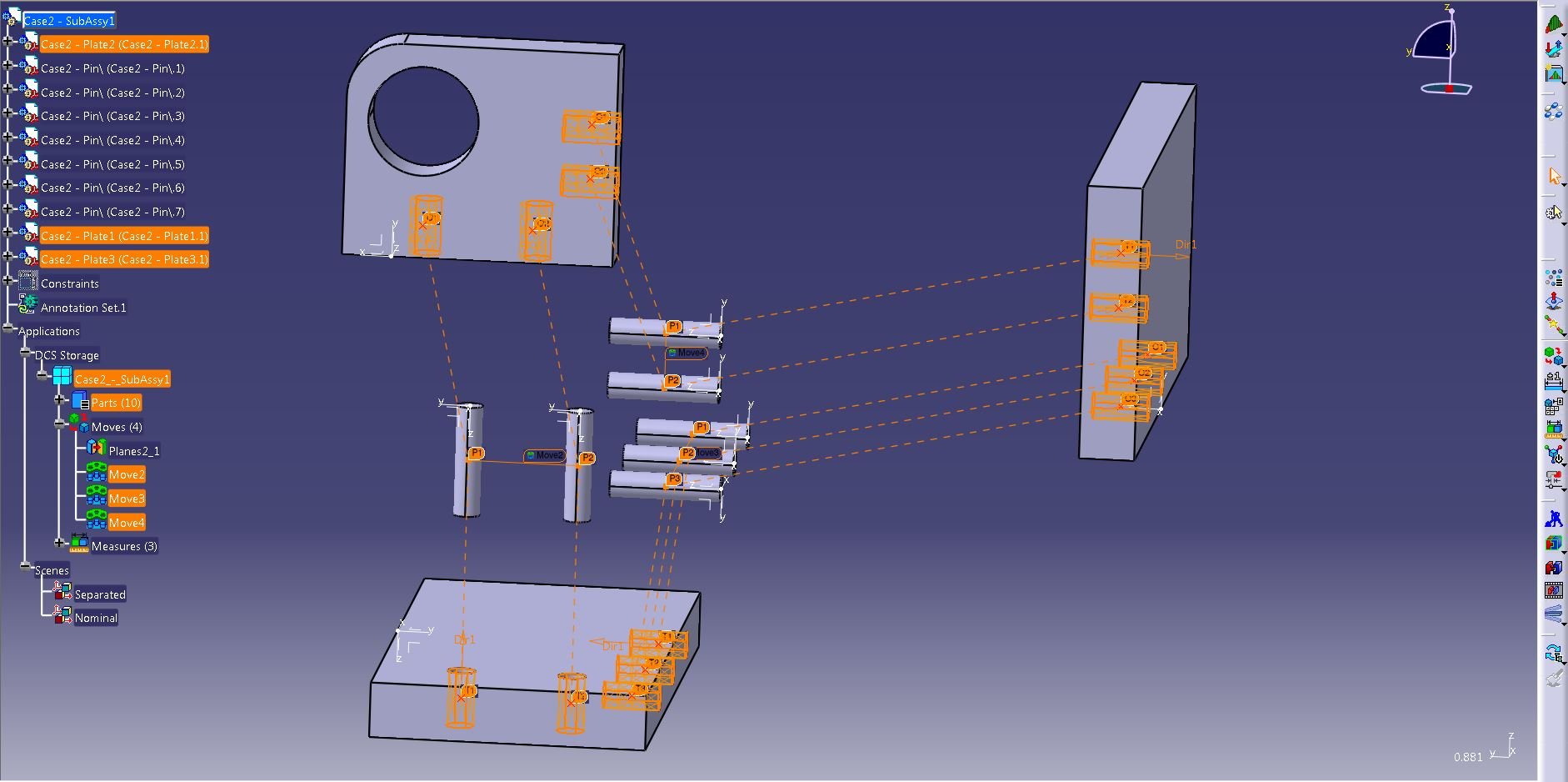
DCS is hosting a webinar on the use and application of Iteration Move, Iterative and Conditional Logic and Mechanical Moves tomorrow, Thursday December 13th at 11 am EST. As part of the Digital GD&T Series, all current registrants will have access to the webinar and recording.
The Iteration Move is required when an object is to be rotated about a center point in small increments, translated in small increments in a particular direction, or when constructing loop logic around a series of moves. The move will iterate until a measurement is within a specified range.

There are a lot of applications for Iteration Moves, as they can be used to move components together incrementally until a criteria is met. This works for assemblies like gears, as well as holes and pins that may have multiple completion criteria, and will stop the movement at the first completed criteria. For example, a automotive hood is being closed, and has four bumpers that will stop its movement. The hood will stop when it contacts one of the bumpers, but due to variation in the build, each simulated build may contact a different bumper first.
This use of Conditional Logic can be helpful for mechanical assemblies as well as components with multiple criteria that could complete an operation. The Conditional Logic allows the user to specify if/then criteria into the model, creating more complex assemblies.
Mechanical Moves model in 3DCS the same as Joints and Constraints in CAD. Any modeler who is familiar with either Joints and Constraints, or 3DCS moves should find the Mechanical Moves very intuitive.
What makes Mechanical Moves powerful is the ability to chain them together, creating essentially an Iteration Move that allows mechanical assemblies to complete operations with conditional stops. Using Mechanical Moves makes this method of modeling very easy, and can simplify the modeling of many complex assemblies that are difficult to model with traditional classic moves.
The webinar will cover both the concept of Iteration Moves and Iterative Design, as well as demonstrate 3 example models showing how Iterative Design methods can be used in practice.
Being presented by two of DCS' best modelers, Jason Brehmer and Brenda Quinlan, tomorrow's webinar will be an excellent talk backed by technical expertise.
If you ever plan on using Tolerance Analysis software, or currently use 3DCS, you should not miss this webinar.
These Stories on CATIA
No Comments Yet
Let us know what you think